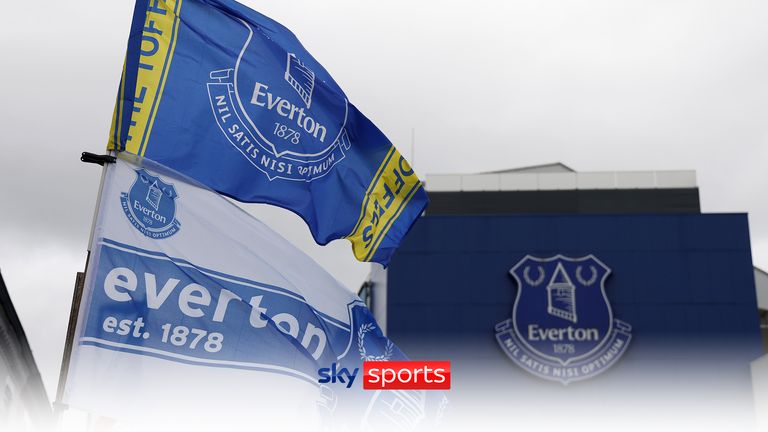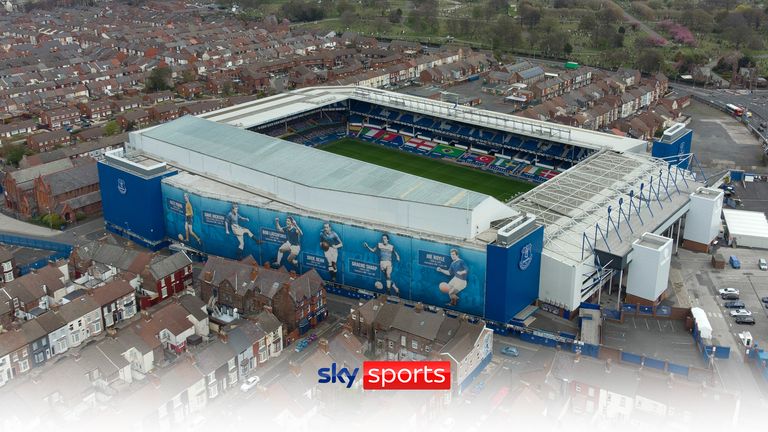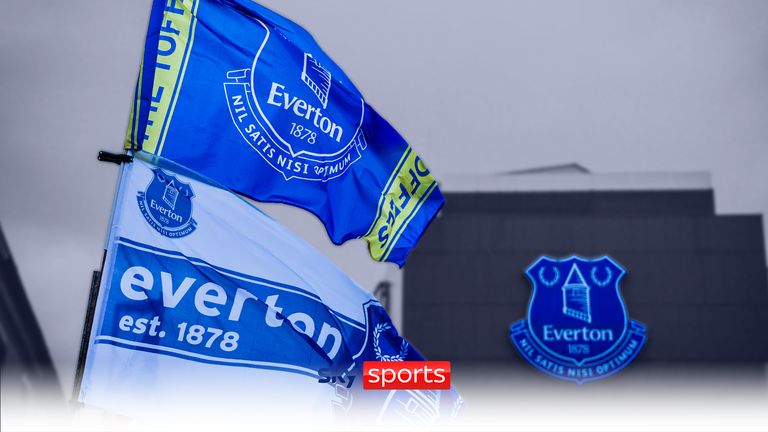[ad_1]
Farhad Moshiri’s decision to opt to sell his whole shareholding in Everton, which he has held since 2018, may have come as a bit of a surprise to some but the Monaco-based businessman has clearly concluded that it is in the best interests of the club and its future.
However, that was not his original intention, as he had at first searched for investment in the Premier League club.
As the failed deal with MSP Sports Capital suggested, initially the model was to bring in that investment whilst retaining a good part of the club.
The agreement with 777 Partners, a Miami-based investment broker, will see Moshiri cut his ties with the club after seven tumultuous years that at first offered a long-suffering fanbase hope of a new dawn, similar to that witnessed at Manchester City and more recently at Newcastle United.
What followed was anything but – despite Moshiri ploughing in several hundred million pounds.
A perfect storm of poor management, erratic decisions and scattergun recruitment has plunged Everton into a financial black hole, one which resulted in a downward spiral that translated onto the pitch in the form of two relegation very-near-misses.
There is no doubt a major factor in the situation turning more serious was the war in Ukraine, and the subsequent freezing of income from sponsorship deals with Moshiri’s long-time business partner and friend, Alisher Usmanov.
The most notable of those was a £300m stadium naming rights deal, guaranteeing the build of the club’s future new home at Bramley Moore Dock, which Moshiri himself has funded to date. Indeed, the 68-year-old has ploughed in close to £700m over his tenure.
That stadium build is crucial to the future of the club and will provide an estimated £60m worth of increased annual income. Moshiri made that happen when many previous efforts had failed during the Bill Kenwright and True Blue ownership.
The current major outlay on the stadium will undoubtedly bear fruit, as the future cost of building such a structure would present big challenges for other clubs who may hope to follow suit.
There is no doubt that if Putin’s invasion of Ukraine had not happened, I wouldn’t be sitting writing this article. The loss of income due to the war changed the landscape immeasurably and has resulted in the proposed change of ownership.
But what of the owners to be – 777 Partners? Who are they? How different will their ownership of the club be, should they meet all of the regulatory requirements in the months ahead?
The perception of the group has been one of scepticism from many Everton fans and some in the wider football community – indeed, scrutiny of ownership is now as big a talking point in football as a cup final hat-trick! Fans are heavily invested in who owns their club and the intentions of those that do.
That scrutiny will be no less intense at Everton. 777 have arrived under the banner of a ‘multi-club investment model’ – they have stakes in a number of well-known clubs around the world, such as Spain’s Sevilla, Italy’s Genoa, Vasco da Gama in Brazil, German club Hertha Berlin, Paris FC in France and a few more from Belgium to Melbourne.
There has been some success with those clubs in the shape of promotions for Genoa and Vasco da Gama, and Paris FC sitting at the top of their division in France. But fans of Standard Liege have expressed unhappiness at the group, with protest banners at a recent game.
The prospective new owners currently have investments worth over £10bn, and it’s not just football that they are invested in. They also have a stake in British Basketball League club London Lions, together with sports rights businesses in South America.
777 will have to convince the club’s fanbase, the wider football world, and governing bodies of their suitability to take over such an important institution like Everton Football Club. The club has a huge tradition and history, but it has also lost its way, gradually declining from the very top table of English football over the last 28 years where previously Everton had been a leader and a mainstay.
It is a club in need of unity and fresh ideas.
My understanding is 777 Partners’ major strategy is to transform the businesses they invest in into strong, robust and self-sustainable financial organisations, something you could argue Everton could certainly benefit from.
They look to maximise commerciality and sponsorship, introducing diversity into the business model. That all sounds intriguing and welcome, but as someone once said, ‘everyone has a plan until they get punched in the face’.
Everton and their fans have taken some good punches over a long period of time, almost to the point where the fans at least are looking punch drunk.
In football, results on the pitch matter and it’s a difficult job for all owners – let alone new ones – to achieve success on and off the pitch concurrently.
It is way too early to assess 777 Partners and their suitability. They must lay out their plans and they must be heard before they are judged with any degree of fairness and ultimate analysis.
They will need to show their hand both financially and morally. They will also be judged on the early decisions they make regarding the existing board, including chairman Kenwright and what involvement or not he will have going forward.
What is important is how they intend to run the club, what culture they want to adopt, and how they communicate that to a passionate fanbase. That has been lacking at the club for quite some time and is something the fans have been increasingly demanding in recent years.
[ad_2]
Source link



